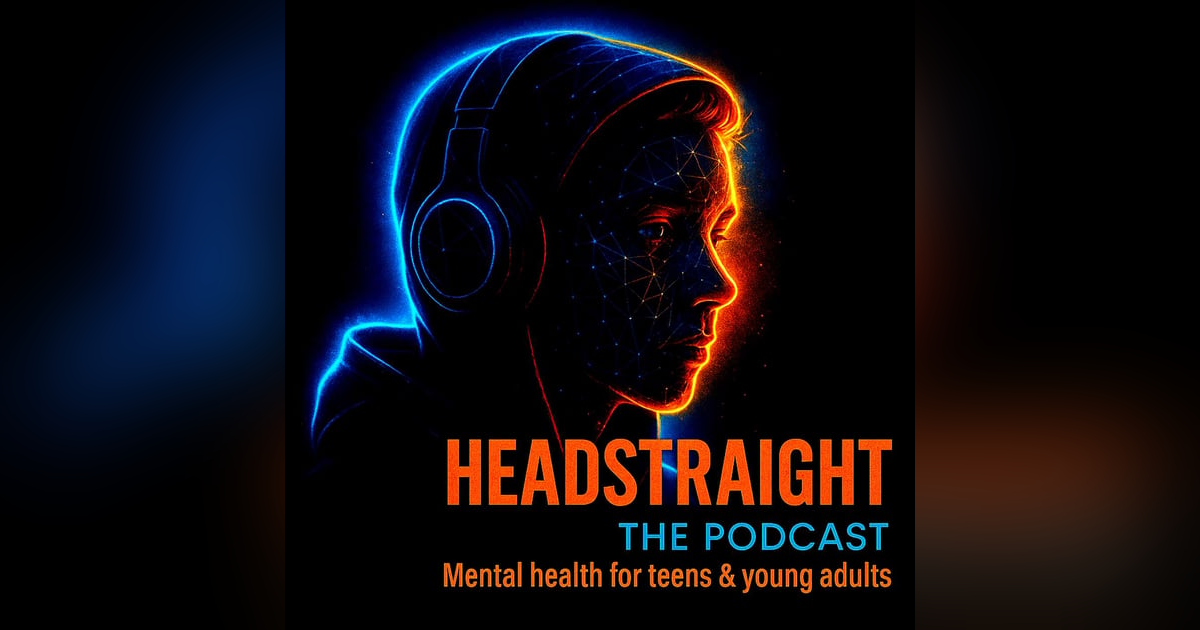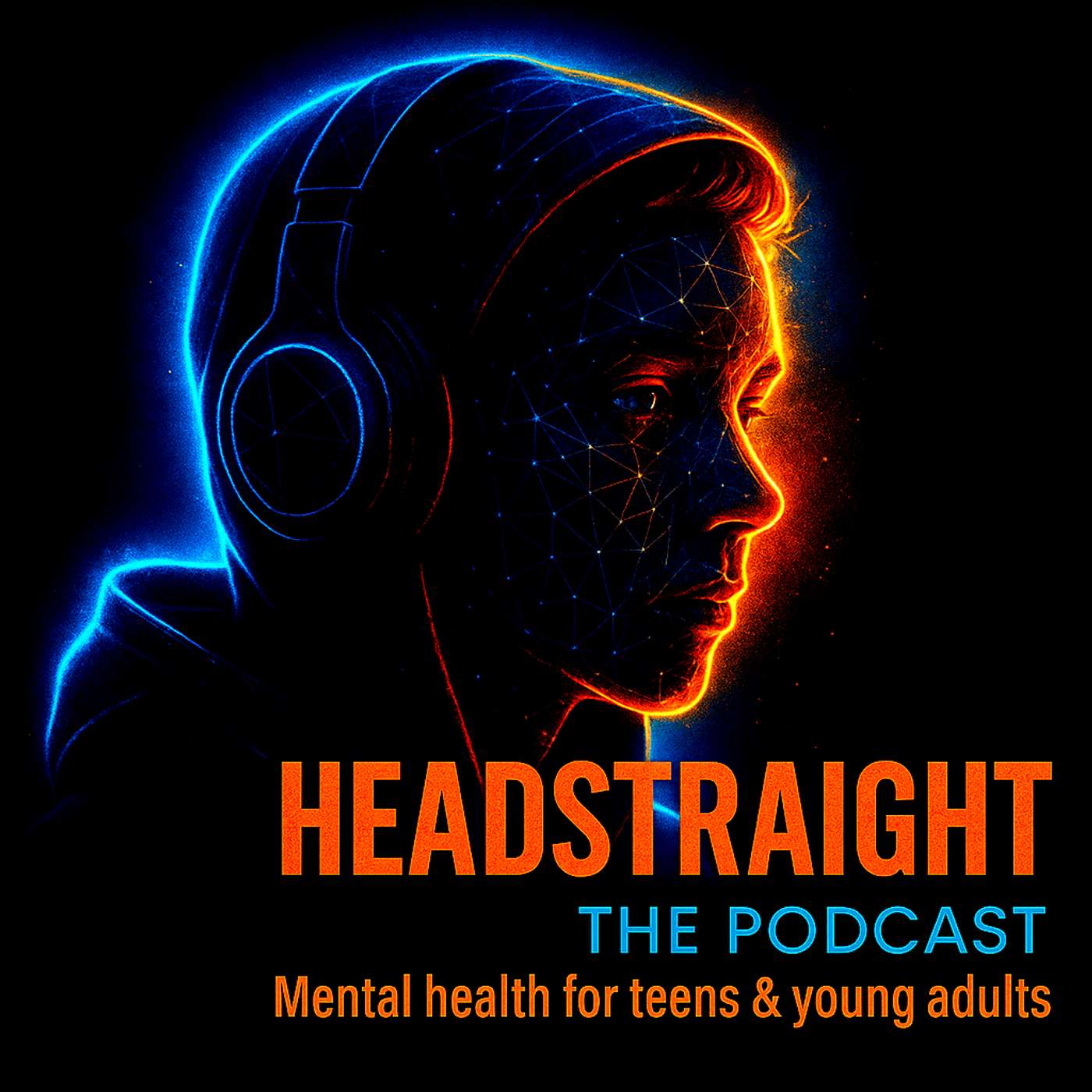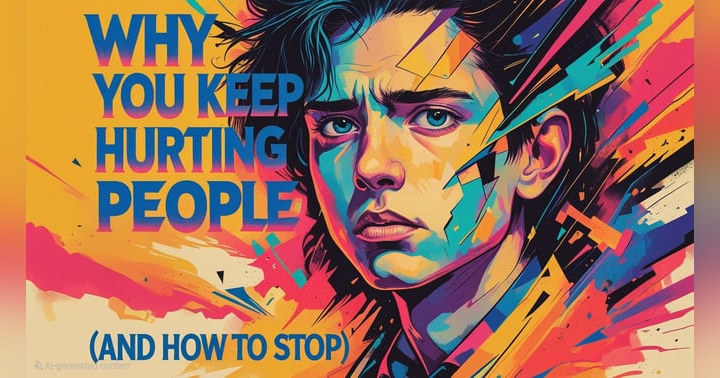Why You Lash Out (and What to Do About It)


You snap at a friend. You say something sharp you instantly regret. Or you notice people pulling away and wonder, “Why do I keep doing this?” Hurting others—on purpose or by accident—isn’t random. It’s what happens when self doubt, bottled-up shame, and unspoken mental challenges spill over. For many young adults and teens, those outbursts come from carrying too much: stress, insecurity, anger, or the weight of constant teen troubles.
In this episode of Headstraight, we’ll unpack why these patterns happen and how to break them. We’ll look at the “invisible backpack” of emotions you’ve been carrying, how losing motivation and self-sabotage feed into lashing out, and why “I didn’t mean to” doesn’t always cut it. You’ll hear straight talk on what accountability really looks like—owning your actions, offering proper apologies, and committing to better choices.
We’ll also explore why it’s so hard to stop, what role your emotional “gas pedal” and logical “brakes” play, and how to pause before you hurt someone again. And when it’s not just you? We’ll cover how to use boundaries to protect your emotional well-being, without guilt or revenge.
This is real talk mental health—honest, practical, and free of fluff. By the end, you’ll know how to repair trust, protect your teen mental health, and strengthen self reliance and self control so you can stop repeating the same mistakes.
Got something to say? - come send me a message at www.headstraight.co.uk/contact/
or send me a voice note at www.headstraight.co.uk/voicemail/
Click here if you want more info about the host
If you need more information about helplines, services or what do to if you're in a crisis, take a look at our resource page: https://www.headstraight.co.uk/resources
Mark:
My name's Mark, and you're listening to Head Straight. Okay. Let's face it. If you're asking yourself this question, why do I keep hurting people? Then it's not random.
Mark:
Maybe someone called you out on it. Maybe you've noticed friends or family pull away, or maybe it's that quiet nagging feeling that shows up when you're lying awake at night, running through all the times that you've let your temper, insecurities, or frustrations get the better of you. Whatever got you here? Good. It means that you care enough to figure it out.
Mark:
That's step Here's the thing, hurting others isn't always an accident. Sure, sometimes you say something dumb or snap when you're in a bad mood, but other times? Other times it's a choice. One you make in the heat of the moment to protect yourself, lash out, or prove a point. And maybe it feels satisfying for five seconds, but then the guilt creeps in, and you're stuck in the same cycle.
Mark:
Sound familiar? Familiar? You're not alone. Plenty of people struggle with this, but not everyone takes the time to figure out why it happens and how to stop. Now if you're here to do the work, then let's get into it.
Mark:
Now you don't hurt people out of nowhere. Most of the time, it's less about them and it's more about what you're carrying around. Think of it like an invisible backpack stuffed full of things that you've collected over the years. Anger, jealousy, insecurity, shame. And instead of unpacking it, you've shoved it down and hoped that it wouldn't spill over.
Mark:
Spoiler alert, it always spills over. Now back in episode one, we talked about that not good enough voice. The one that makes you second guess yourself or feel like you have to prove your worth. Now if you're carrying that around, it can make you defensive. Maybe someone gets a little too close to your insecurities, and your instinct is to lash out, protect yourself or push them away before they see the parts of you that you don't like.
Mark:
For example, let's say you've had a rough day and someone makes an innocent comment that just hits a nerve. Before you know it, you've snapped back with something sharp. It wasn't about them, it was about you and all the stress or self doubt that you've been bottling up. Sound harsh? Maybe, but it's also honest.
Mark:
The good news is that if problem is inside you, then the solution is too. Just want you to ask yourself, what am I carrying around that makes me react like this? What's really going on in my head right now? Because when you can name it, you can start to deal with it. Now we've all said it, I didn't mean to hurt you.
Mark:
And maybe that's true. But here's the thing, intentions don't matter as much as we like them to. If someone steps on your foot it doesn't hurt any less just because they didn't mean it and the same goes for emotional stuff as well. In episode two we talked about how emotions can take over and drive your actions before you've had a chance to think. When you're angry, frustrated or feeling hurt yourself, it's easy to say something that you didn't mean or lash out in a way that you'll regret later.
Mark:
But even if your intention wasn't to cause harm, the impact is still there. So start by asking yourself what did I actually do? Are you careless with your words when you're in a bad mood? Do you shut people out when they need you? Do you pick fights because you're stressed and don't know how else to deal with it?
Mark:
Whatever it is, own it. You can't fix what you won't admit. So stop hiding behind I didn't mean to and start asking what can I do to make this right? Now here's the frustrating part. Even when you know that you're hurting people, stopping can feel impossible.
Mark:
Why? Because habits are hard to break and emotions are messy. In episode two, do you remember how we talked about your brain's emotional gas pedal, the amygdala, and how it can overpower your logical brake system, the prefrontal cortex? When something triggers you, a fight, a bad day, or even a memory of something from years ago. Your brain goes straight into fight or flight mode.
Mark:
You react first without thinking and before you know it you've done or said something that you just can't take back. And let's be real, sometimes in the heat of the moment lashing out feels like the only option. Maybe it gives you a false sense of control or a momentary release. But then what? You're left cleaning up the mess, apologizing or dealing with the fallout.
Mark:
Breaking that starts with recognizing your triggers. What is it that sets you off? Is it feeling ignored, criticized, overwhelmed? Once you know what's pushing your buttons, you can start to interrupt the reaction. So next time you feel yourself about to snap, I just want you to stop, take a breath and ask yourself, what's really going on here?
Mark:
Do I need to respond right now or can I just take a moment to call off? Now let's get one thing straight. Just because you've hurt people doesn't make you a monster. It makes you human. Humans screw up.
Mark:
But here's the catch. Being human doesn't excuse bad behaviour. If you want to stop hurting others then you've got to take responsibility for it. Back in episode five we talked about how better choices start with recognising what's driving your action. The same principle applies here.
Mark:
If you've hurt someone, don't brush it off with a half hearted sorry you feel that way. Own up to it. Apologise properly. And I mean a real apology. And a real apology sounds like, do you know what?
Mark:
I know I hurt you and I'm really sorry. What can I do to make it right? Then you need to listen to their perspective. Even if it's hard to hear, the goal isn't to defend yourself. It's to understand how your actions affected them.
Mark:
And then you need to commit to changing because an apology without change, that's just empty words. Now remember what we said in episode three. Lean on your support network. Trusted people can help you figure out what went wrong and how to do better next time. Now owning your mess isn't about guilt.
Mark:
It's about showing that you care enough to make things right. Now sometimes the people you hurt aren't completely innocent. Maybe they've pushed your buttons, crossed your boundaries, or said things that cut really deep. If that's the case, it's okay to set boundaries, but how you do it really matters. Now think back to episode four.
Mark:
Setting boundaries isn't about lashing out or cutting people off. It's about protecting your peace in a way that's respectful and clear. Instead of blowing up try saying, do you know I don't like how this is going and I just need to step back. This isn't working for me, so let's talk about it later. Boundaries aren't about hurting them back, they're about making sure you're not reacting out of anger or frustration.
Mark:
Boundaries done right protect you and the relationship you're in. They're not about revenge, they're about respect. Now, at the end the day, the question isn't just why do I keep hurting people? It's what am I going to do about it? You can't change the past, but you can decide how you'll show up moving forward.
Mark:
The cycle stops when you decide it does. So what's it gonna be? So just to wrap up, hurting people doesn't have to define you. It's just part of your story, and it's one you can rewrite. So start small.
Mark:
Apologize honestly when you mess up. Notice what triggers your reactions. Practice pausing before you respond. And don't forget the tools that we've talked about this season. Self awareness, emotional regulation, boundaries, and better choices are all here for you.
Mark:
The question is, are you ready to use them? Now one last thing before we wrap up. If any part of this episode has made you think, I've got to stop letting people cross the line, then you'll want to listen to the next episode. In episode eight, we're breaking down what real boundaries look like. None of that vague protect your peace fluff.
Mark:
We're gonna get into why setting boundaries feel so awkward, how to do it without blowing up your relationships, and what to say when guilt tries to talk you out of it. It's not about being mean. It's about being clear. So I'll catch you then.













